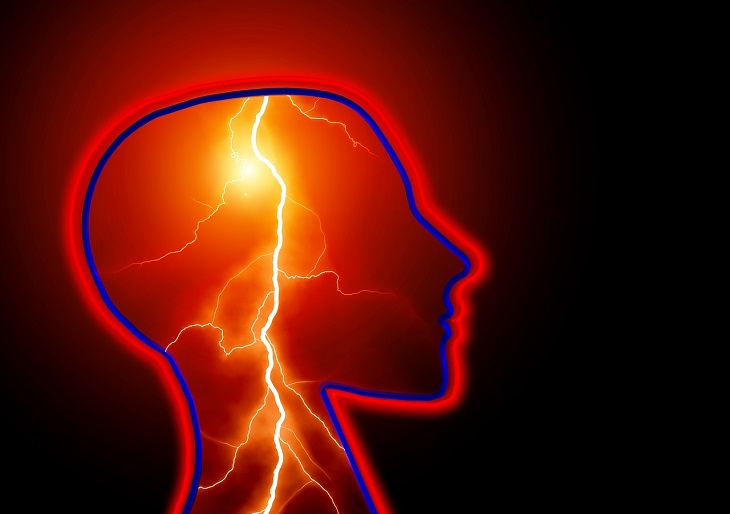Can medical marijuana treat epilepsy? This is an important question that needs to be thoroughly explored by any patient or carer of a person with epilepsy. Epilepsy is a serious medical condition that can be dangerous if not properly treated. Treatment of epilepsy is complex, but there are some signs that medical marijuana may offer benefits to some epileptic patients.
It’s important for those with epilepsy to remember that proper treatment and symptom management are paramount. No treatment should ever be tried without detailed consultation with a medical professional who has expertise in epilepsy.
Is epilepsy a qualifying condition for a medical marijuana card? Is medical marijuana safe for epileptic patients? Can MMJ benefit people with epilepsy? These are all complex questions with nuanced answers. In this article, we will detail some important things you need to understand about medical marijuana and epilepsy.
What Is Epilepsy?
Epilepsy is the fourth most common neurological disorder in the U.S. It is a chronic condition that affects the nervous system and can affect people of all ages. The condition is characterized by recurrent, often unprovoked, and unpredictable seizures that can vary in intensity and duration and are caused by disturbances in the electrical activity of the brain.
The History Of Epilepsy
The word ‘epilepsy’ comes from the Greek word “epilepsia”, which means “to seize”. The first mention of epilepsy from antiquity is in a Babylonian textbook from at least 2000 BC. This ancient text records several types of epileptic seizures and suggests that the cause of seizures is evil spirits.
The ancient Greek physician Hippocrates (460–370 BC) was one of the first people to realize that epilepsy was a brain disorder, but his accurate view of the condition was not generally accepted until the 19th century. Throughout the intervening 2000 years, people with epilepsy were generally viewed with fear and superstition.
In the 19th century, neurology became a serious medical discipline, and as epilepsy began to be better understood as a brain condition, drugs began to be used to treat it successfully.
The Symptoms Of Epilepsy
The main symptom of epilepsy is seizures. Epileptic patients can experience a number of different types of seizures, classified as focal onset, generalized onset, or unknown onset seizures. These different types originate in different parts of the brain, have different symptoms and effects on the body, and require different types of treatment.
While seizures can affect any part of the body, they always originate in the brain. The cause of epilepsy can be a brain injury, genetic factors, family history, metabolic causes, brain structure, or, often, causes unknown.
Usual Epilepsy Treatment Plans
There are several types of medicine available to treat epilepsy. For most people, one of these medicines will be effective at preventing seizures. It is crucial that an epileptic patient gets the right medicine for their version of the condition.
For around 60% of patients, the first one or two medicines they try will work. For some other patients, a third or fourth medicine, or a mixture of medicines, may do the trick. But for approximately 36% of patients, none of the medicines they try will work to fully prevent seizures.
For people who do not respond to early medicines, a process of trial and error is required, under close supervision from their doctor, neurologist, or epilepsy specialist. For these people, a combination of medicines or alternative treatments will often be the best course of treatment.
Is Epilepsy A Qualifying Condition For A Medical Marijuana Card?
The qualifying conditions for a medical marijuana card vary state by state. But in most legal MMJ states, seizures brought on by epilepsy are a qualifying condition for an MMJ card.
Can Medical Marijuana Be Effective At Treating Epilepsy?
Is medical marijuana effective for epilepsy? While it is legal to prescribe MMJ for epilepsy in most legal-MMJ states, the jury is still out on the extent to which medical marijuana can help epilepsy patients. Epilepsy is complex, and each person’s version of the condition is somewhat unique. Some treatments can do some patients more harm than good.
Medical marijuana may help some epilepsy patients. MMJ should be tried as a treatment under strict supervision and direction from a patient’s doctor. Epidiolex is a CBD-derived drug that is FDA-approved and can be an effective treatment for epilepsy. CBD and MMJ can have significant interactions with other drugs used to treat epilepsy, so caution is essential.
Some patients have been able to ween off other epilepsy medications because Epidiolex or MMJ has proven so successful a treatment for them. But this does not happen for everybody.
Treatment of epilepsy is complex and different people respond differently to various treatments, so while MMJ can be effective, it is essential that it is tried tentatively and under the strict supervision of a doctor, neurologist, or epilepsy specialist.
How To Apply For A Medical Marijuana Card
The best way to apply for a medical marijuana card is to have an online consultation with a local MMJ physician through MMJRecs. This way you can talk with a professional from the comfort of your own home and get an MMJ card recommendation quickly and easily.
The Benefits Of An MMJ Card Over Recreational Marijuana Access
Many U.S. states now allow recreational marijuana use. In these states, it is still beneficial to have a medical marijuana card, because it enables you to choose from the widest range of MMJ products possible and in many cases to purchase, possess, and cultivate larger amounts of cannabis than would be allowed for recreational use.
Featured image by CBD-Infos-com on Pixabay


